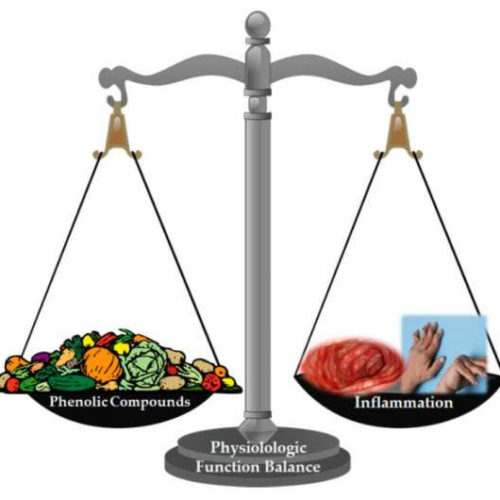by Laura Arenschield, The Ohio State University Electrical impulses could speed wound healing by triggering better permeability in blood vessels, a new study shows. Credit: Image by Dennis Mathias Electric stimulation may be able to help blood vessels carry white blood cells and oxygen to wounds, speeding healing, a new study suggests. The study, published in...
Researchers boost potency of an HIV-1 antibody, tracing new pathways for vaccine development
by University of Kansas Bharat Madan, a postdoctoral researcher in the DeKosky lab, headed research into potential of the vFP16.02 antibody. Credit: Matheus Oliveira de Souza Much like coronavirus, circulating HIV-1 viruses mutate into diverse variants that pose challenges for scientists developing vaccines to protect people from HIV/AIDS. “AIDS vaccine development has been a decades-long challenge partly because our immune...
Researchers discover new protein that may play a key role in atherosclerosis
Reviewed by Emily Henderson, B.Sc.Mar 11 2021 Atherosclerosis is the underlying condition that causes heart attacks and strokes. Researchers at Radboudumc in the Netherlands have discovered a protein that appears to play an important role in atherosclerosis. The protein is called Prosaposin, and its role in atherosclerosis was sofar unknown. “We identified Prosaposin as a new potential target...
MODEL WARNS OF NEW MOSQUITO INVASION IN FLORIDA
MARCH 11TH, 2021POSTED BY LOURDES RODRIGUEZ-U. FLORIDA (Credit: Getty Images) When a new mosquito species capable of transmitting disease arrives and shows signs it can survive across multiple urban and rural habitats it brings the potential for public health risk. Aedes scapularis is a nonnative mosquito, just discovered in November 2020. It can transmit yellow fever virus,...
First lab-grown mini-thyroids use patients’ own tissue
INTERNATIONAL SOCIETY FOR STEM CELL RESEARCH IMAGE: HUMAN THYROID ORGANOID DISPLAYING FUNCTIONALITY THROUGH THYROGLOBULIN (GREEN) PRODUCTION AND PROLIFERATIVE CAPACITY BY KI67 (RED). CREDIT: VIVIAN ML OGUNDIPE Hormones produced by the thyroid gland are essential regulators of organ function. The absence of these hormones either through thyroid dysfunction due to, for example, irradiation, thyroid cancer or autoimmune...
Neuroprotectant delivered to brain in nanoparticles may improve stroke treatment, outcomes
AMERICAN HEART ASSOCIATION DALLAS, March 11, 2021 — When NA1, a neuroprotectant, was delivered to the brain in nanoparticles, it reduced stroke severity and improved survival in a mouse model of stroke, according to preliminary research to be presented at the American Stroke Association’s International Stroke Conference 2021. The virtual meeting is March 17-19, 2021 and is...
New study suggests UK coronavirus variant is significantly more deadly
By Rich Haridy March 10, 2021 A new peer-reviewed study is among several to suggest the UK variant of the virus that causes COVID-19 leads to greater rates of death and hospitalizationWavebreakmedia/Depositphotos A new peer-reviewed study published in the British Medical Journal is offering some of the first clear evidence to suggest the SARS-CoV-2 variant B.1.1.7, informally...
Retinal damage may signal higher risk of stroke, dementia and early death
AMERICAN HEART ASSOCIATION DALLAS, March 11, 2021 — Pictures of the retina may someday provide early warning signs that a person is at an increased risk of stroke and dementia, making it possible to take preventive measures, according to preliminary research to be presented at the American Stroke Association’s International Stroke Conference 2021. The virtual meeting is March 17-19, 2021...
Scientists move closer to developing ‘game-changing’ test to diagnose Parkinson’s
by University of Manchester Immunohistochemistry for alpha-synuclein showing positive staining (brown) of an intraneural Lewy-body in the Substantia nigra in Parkinson’s disease. Credit: Wikipedia Results published today show it is possible to identify Parkinson’s based on compounds found on the surface of skin. The findings offer hope that a pioneering new test could be developed to...
Dietary phenolic compounds have an impact on noncommunicable diseases
by Research Institute for Medicines Most dietary antioxidants are derived from eating vegetables, fruits, tea and wine, foods markedly rich in phenolic compounds. The antioxidant defense mechanisms in humans that are not completely efficient make it important to eat exogenous antioxidants to combat excess ROS which can lead to the progress of conditions such as cancer, rheumatoid...







